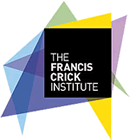Dr K Bishop
No more applications being accepted
Funded PhD Project (Students Worldwide)
About the Project
This 4-year PhD studentship is offered in Dr Kate Bishop’s Group based at the Francis Crick Institute (the Crick).
Retroviruses cause severe diseases including AIDS and cancer. Many anti-retroviral dugs and cellular anti-viral factors target the early stages of the viral life cycle. However, numerous events that occur during these stages are still poorly understood. Work in our laboratory aims to characterise the molecular events that occur once a retrovirus has entered a cell in order to fully understand retroviral replication and provide potential ways in which to manipulate these processes for the benfit of human health.
The mature HIV-1 viral core consists of ~1500 capsid proteins (CA) arranged in a hexagonal lattice surrounding the viral RNA genome and associated proteins. As the outer surface of the core, CA is likely involved in protecting the viral nucleic acid from cytosolic sensors and in trafficking the core to the nucleus. However, the CA lattice can also be recognised by cellular restriction factors that inhibit replication and an intact core is considered too large to pass through a nuclear pore. Thus, shedding of the CA shell, termed uncoating, seems essential for infection [1]. Furthermore, uncoating appears to be triggered by reverse transcription of the viral RNA [2]. Nevertheless, recently, HIV-1 CA has been detected in the nucleus and CA-binding factors have been implicated in the integration process [3, 4]. The mechanism of uncoating, when and where in the cell it occurs, and which, if any, host proteins contribute to the process are controversial. However, most now agree that perturbing uncoating is detrimental to infectivity and that uncoating is a regulated process. Indeed, uncoating is considered a potential therapeutic target. We want to understand the mechanism of uncoating and how CA influences HIV-1 nuclear entry and integration.
This project will involve using a variety of virological, biochemical, microscopic and structural techniques to investigate the role of CA in nuclear entry and integration, how reverse transcription induces HIV-1 uncoating, how the capsid lattice falls apart and where in the cell uncoating takes place. In addition, we will examine the interactions of HIV-1 CA with cellular proteins and study their role in HIV infection.
It is expected that these studies will expand into a wider investigation of the processes that occur early in the retroviral life cycle and will complement other work in the lab studying the corresponding proteins and processes in different retroviruses, including MLV.
Talented and motivated students passionate about doing research are invited to apply for this PhD position. The successful applicant will join the Crick PhD Programme in September 2019 and will register for their PhD at one of the Crick partner universities (Imperial College London, King’s College London or UCL).
Applicants should hold or expect to gain a first/upper second-class honours degree or equivalent in a relevant subject and have appropriate research experience as part of, or outside of, a university degree course and/or a Masters degree in a relevant subject.
APPLICATIONS MUST BE MADE ONLINE VIA OUR WEBSITE (ACCESSIBLE VIA THE ‘APPLY NOW’ LINK ABOVE) BY 12:00 (NOON) NOVEMBER 13 2018. APPLICATIONS WILL NOT BE ACCEPTED IN ANY OTHER FORMAT.
Funding Notes
Successful applicants will be awarded a non-taxable annual stipend of £22,000 plus payment of university tuition fees. Students of all nationalities are eligible to apply.
References
1. Campbell, E. M. and Hope, T. J. (2015)
HIV-1 capsid: the multifaceted key player in HIV-1 infection.
Nature Reviews Microbiology 13: 471-483. PubMed abstract
2. Cosnefroy, O., Murray, P. J. and Bishop, K. N. (2016)
HIV-1 capsid uncoating initiates after the first strand transfer of reverse transcription.
Retrovirology 13: 58. PubMed abstract
3. Peng, K., Muranyi, W., Glass, B., Laketa, V., Yant, S. R., Tsai, L., . . . Kräusslich, H.-G. (2014)
Quantitative microscopy of functional HIV post-entry complexes reveals association of replication with the viral capsid.
eLife 3: e04114. PubMed abstract
4. Sowd, G. A., Serrao, E., Wang, H., Wang, W., Fadel, H. J., Poeschla, E. M. and Engelman, A. N. (2016)
A critical role for alternative polyadenylation factor CPSF6 in targeting HIV-1 integration to transcriptionally active chromatin.
Proc Natl Acad Sci U S A 113: E1054-E1063. PubMed abstract

 Continue with Facebook
Continue with Facebook

